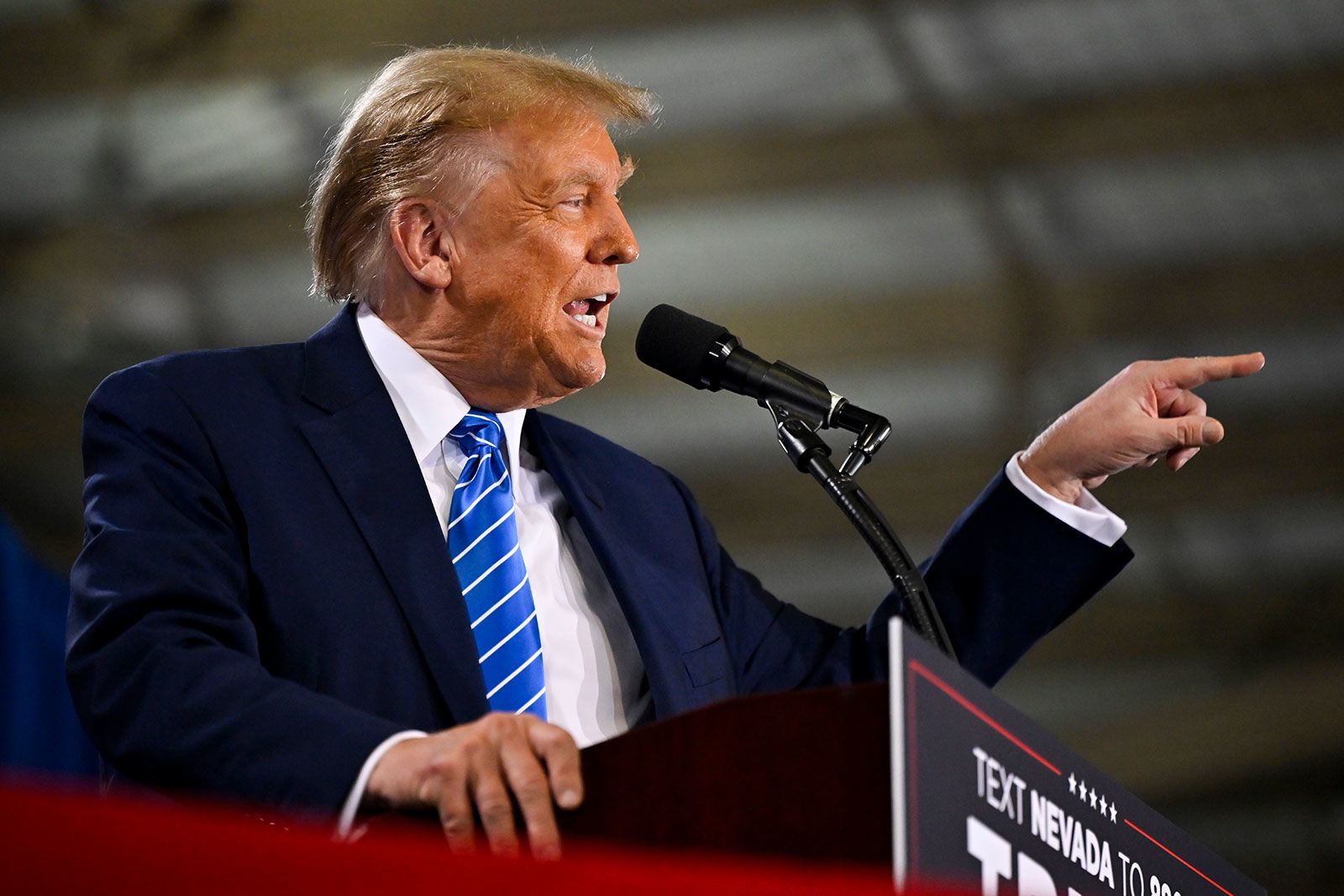Former President Donald Trump is set to return to Washington D.C., a city he has often criticized, to address the International Brotherhood of Teamsters on Wednesday. His visit is expected to provide him with fresh material for his ongoing critique of the city, which he often portrays as a dystopian landscape in his potential 2024 campaign speeches.
Trump has frequently used Washington’s issues with gun crime and carjackings to paint a picture of a city, and by extension a nation, in desperate need of a strong leader. “You can’t walk down the streets of these cities these days without being shot or mugged or beat up or pushed into a subway train,” Trump said in a speech in Manchester, New Hampshire, on January 20.
Despite his exaggerated portrayal of the city’s current state, Washington does face challenges, particularly in the wake of the pandemic. Trump has visited the city several times since his departure from the presidency in January 2021, a time when the US Capitol still bore the scars of the mob invasion by his supporters.
Trump’s disdain for Washington offers insight into his politics and character. His political project is dedicated to metaphorically tearing down a city that exists to provide governance. If re-elected, Trump has pledged to dismantle the professional civil service. In the eyes of Trump and his supporters, Washington is the epicenter of a corrupt Deep State that is dedicated to destroying the “Make America Great Again” movement and is a playground for political and media elites.
Washington’s marbled monuments have also served as the backdrop for some of the most notorious moments of Trump’s political career, highlighting his autocratic leanings. His false claims about the size of his inauguration crowd, his government’s easing of Covid-19 pandemic restrictions for a Fox News interview inside the Lincoln Memorial, and his march across Lafayette Square after it was cleared of racial injustice protesters, are all examples of this.
Trump’s critique of Washington has sometimes carried racial overtones. In 2020, he tweeted that people protesting the death of George Floyd would be met by “vicious dogs” if they breached the White House fence. This evoked imagery of the Civil Rights movement and the suppression of protests against segregation in the Deep South.
Washington’s Democratic mayor, Muriel Bowser, who frequently clashed with Trump, responded by tweeting, “There are no vicious dogs & ominous weapons. There is just a scared man. Afraid/alone…”
Trump’s upcoming trial for election subversion in federal court in Washington has fueled his claims that it will be impossible for him to get “even close to a fair trial.” He wrote on Truth Social last year, “There are many reasons for this, but just one is that I am calling for a federal takeover of this filthy and crime ridden embarrassment to our nation.”
However, acceptance of his argument – that he can’t be fairly tried in the city for political reasons – would unravel the justice system. If politicians can choose their juries and judges in politically favorable jurisdictions, corruption would run rampant.
Despite his criticisms, Trump has shown admiration for Washington’s architecture. In December 2020, he issued an executive order praising the capital’s unique real estate, noting that “President George Washington and Secretary of State Thomas Jefferson consciously modeled the most important buildings in Washington, D.C., on the classical architecture of ancient Athens and Rome.”
As Trump returns to Washington, the city continues to grapple with the legacy of his presidency, including the chilling moment when Trump held a rally on the Ellipse on January 6, 2021, and told his crowd to “fight like hell” for their country before the mob ransacked the Capitol building.

